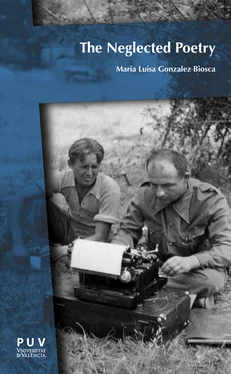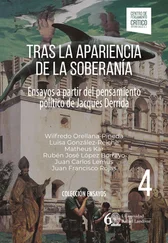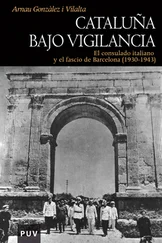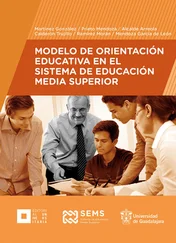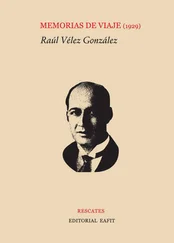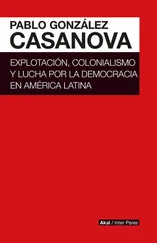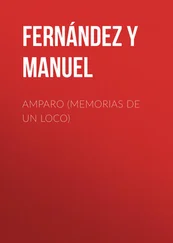He was an African from Guinea on the west Coast, who had come to study in Spain before the war. He had enlisted in the People’s Army, he told me, but having been a university student, he was assigned to the officers’ school in Valencia to study for a commission. I asked this young African what he thought about the war. He said, “I hope the government wins because the new Republic stands for a liberal colonial policy with a chance for my people in Africa to become educated. On Franco’s side are the old dukes and counts and traders who had exploited the colonies so long, never giving us schools or anything else. (1993: 329).
Regarding Germany, after the Nazi party won the elections in 1933, the country massively extended its rearmament; the Nazi army occupied the Rhineland strip in March 1936. This remilitarization violated the terms of the Treaty of Versailles (Whitaker, 1943: 4). Conversely, Great Britain was doing the same as well, in spite of its politics of appeasement, among other things because it was not prepared to defend itself. As a colonial empire, it possessed a huge merchant fleet. However, the United Kingdom needed to gain time in order to manufacture modern weapons, such as aircraft bombers, antiaircraft batteries, surface ships, submarines and so on. The appeasement policy was the strategy which Great Britain followed, while Germany annexed Austria in March 1938. The same year, on September 30, the Munich Agreement reached by Germany, Great Britain, France, and Italy, permitted Germany to annex the Sudetenland in western Czechoslovakia.
In this sense, the Field Marshal, the Viscount of Alanbrooke, wrote an autobiographical diary where he traced on paper what the situation of Great Britain was in September 1939:
When on September 3rd, 1939, Britain, carrying with her a deeply-divided and hesitant France, met Hitler’s invasion of Poland by war, the bulk of her Battle Fleet had been rearmed against air attack […] her Metropolitan Air Force, though still only a third of the size of the Luftwaffe, offered, in its small but superlative trained Fighter Command, some answer to the trump card of unopposed bombing with which for the past eighteen months Hitler had blackmailed Europe. For the first time, too, as a result of the rapid build-up of Anti-Aircraft Command, London and the principal ports and factory towns had some rudimentary ground defence against day bombardment from the air. (Bryant and Brooke, 1958: 41)
2.2. The Diplomatic Trench
At the beginning of the 1930s, the majority of the Spanish diplomacy, as well as that in other European countries, was represented by the aristocracy. However, with the arrival of the first Spanish Republic in 1931, the diplomatic career began to be professionalized. After the coup d’état conducted by the rebel generals, most of the Spanish diplomats sided with them, betraying their loyalty to the Spanish Republic. The answer of the Spanish Foreign Office was to defend the integrity and interests of the Spanish Republic in the trenches of diplomacy against the false agreement of non-intervention and its violation by Germany and Italy. According to Casanova (2010: 86-87):
To replace the disaffected diplomacy, it used distinguished intellectuals and university staff, almost all of them from the Socialist Party: the jurist Fernando de los Ríos, who had been a minister in the Republic between April 1931 and September 1933, was sent as ambassador to Washington; Doctor Marcelino Pascua to Moscow; the journalist Luis Araquistain to Paris; and Pablo de Azcárate, the only one who really had any experience in international diplomacy, was put in charge of the embassy in London.
Pablo de Azcárate was former Under-Secretary General of the League of Nations, Jurist consultant and Historian, and he had no political linkage to the Communist party. Azcárate served as ambassador of the Spanish Republic in London during the Spanish Civil War; he demonstrated with facts how the Nazi military intervention was not a mere drill of its weaponry; it occupied Spain by war and its alliance with the rebels gave them the victory against the Spanish Republic:
And on the 22 ndof that same month the German Under-Secretary of State summed up the situation in a memorandum, referring to the petition that General Franco had sent to the German government at the beginning of October, for a significant amount of new war material (dealing with 50,000 rifles, 1,500 light machine guns, 500 heavy machine guns and 100 75mm tank gun pedestals), “do we want to try and help Franco until his final victory? Then he will need an even more important and superior military help than he is asking us for now. Does this deal with trying to keep Franco as equally supplied as the reds? In this case our help will also be necessary and the material that he asks for can be of great use. If our help to Franco is only going to be limited to the Condor legion, he will be able to intend another thing than any compromise with the reds.” (2012: 258, the translation is ours).
2.3. Let Who is Free of Sin Throw the First Stone
According to George Orwell, the fate of the Spanish Civil War was decided in London, Paris, Rome and Berlin, but, by no means, in Spain (Muste, 1966: 173). Orwell emphasized that the Spanish Republic was tied hands and feet because the agreement of non-intervention was a real intervention. By subjecting loyalist Spain to an arms embargo, the Spanish Republic was defenceless against the fascist powers which supplied everything that the rebel army asked for. The declaration of Herman Goering at the trial of Nuremberg illustrates this issue perfectly:
I urged Hitler to give support under all circumstances, firstly in order to prevent the further spread of Communism in that theatre and, secondly, to test my young Luftwaffe at this opportunity in this or that technical respect. With the permission of the Führer, I sent a large part of my transport fleet and a number of experimental fighter units, bombers and anti-aircraft guns; and in that way I had the opportunity to ascertain, under combat conditions, whether the material was equal to the task. In order that the personnel, too, might gather a certain amount of experience, I saw to it that there was a continuous flow, that is, that new people were constantly being sent and others recalled (Mombeek, Smith and Creek, 2001: 2).
The republican government had no other choice than to buy weapons from Russia, that did not begin to supply them until the middle of October 1936. The government had received rifles and machines guns from Mexico from the time of the revolution of Zapata, and they were not very useful, except as antiques.
In October 1936, the socialist Deputy of the Spanish Parliament, Luis Jiménez de Asúa, attended the Labour Party Conference in Edinburg. The title of his speech was “The Agony of Spain: Socialist Appeal to British Democracy”: 2
In the papers this morning you will have read that there has been a terrible air bombardment by heavy bombers of the villages around Madrid. We could not stop that bombardment. Why? Because we had not the fighting aircraft to do it, because the Pact of Non-intervention has prevented us from getting them. What does it mean, the Pact of Non-Intervention? On the legal side-I’m a lawyer; I speak as a lawyer- on the legal side the Pact of Non-Intervention is a monstrosity. It has become the most powerful of interventions against the Government of Spain.
The excuse for which the European powers sustained the arms embargo on Spain was that the Republican Government of the Popular Front was responsible for religious prosecutions, Calvo Sotelo’s death and that Communism would convert Spain into Stalin’s satellite. Nevertheless, in spite of the invasion by Italian and German troops and the indiscriminate bombings of the civilian population and their direct participation in all the battles, the invaders never declared war on the legal Spanish Government.
Читать дальше
